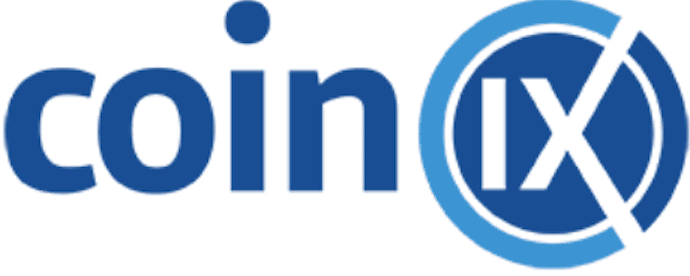Hamburg, 1 Dec 2023 - Blockchain technology holds tremendous potential in empowering refugees by facilitating access to essential financial instruments and aids. The advantages of adopting blockchain-based identification systems for refugees are manifold, including end-to-end efficiency and the establishment of a secure platform with a paramount emphasis on privacy. The secure nature of the blockchain platform guarantees maximum privacy, addressing concerns related to data breaches and unauthorized access.
Furthermore, the utilization of blockchain enables simplified data collection, providing a comprehensive overview of the number of refugees receiving assistance. This not only enhances accountability but also contributes to the creation of a more efficient system for locating displaced families, offering a glimmer of hope in times of uncertainty.
The implementation of immutable IDs through blockchain technology ensures that refugees possess a secure and unalterable means of identification. This not only fosters a sense of security but also expedites various processes, allowing refugees to access critical resources promptly.
This article will delve into a selection of innovative blockchain projects dedicated to advancing financial inclusion for refugees. By leveraging blockchain’s capabilities, these initiatives aim to empower displaced populations by providing them with the tools they need to rebuild their lives and foster a more inclusive and resilient future.
Rahat
Revolutionizing Aid Distribution through Blockchain Innovation
Rahat employs mobile-based blockchain tokens to revolutionize transaction management for beneficiaries. Via SMS messages, recipients receive tokens that can be spent locally for cash or goods. The Rahat platform encompasses a comprehensive ecosystem, including a Dashboard, Wallet, Vendor app, QR code, and SMS-based token redemption process. Utilizing blockchain technology, Rahat ensures highly transparent operations with a readily auditable data trail. This streamlined approach facilitates rapid aid distribution while significantly reducing traditional costs such as bank fees and staffing expenses.
Kotani Pay
Empowering the Unbanked in Kenya
Operating in Kenya, Kotani Pay empowers unbanked populations in developing countries by facilitating seamless blockchain-based money transfers. Leveraging USSD technology, users can send and receive money without the need for internet access, smartphones, or complex cryptographic keys. Kotani Pay also incorporates stablecoins, allowing users to convert CUSD to local currencies through their digital wallet. With a simple phone call, users can access a menu to convert cryptocurrencies to fiat and vice versa, ensuring financial inclusion without barriers.
Impact Market
Decentralized Anti-Poverty System
Impact Market pioneers a decentralized anti-poverty system, utilizing both blockchain and USSD technology to provide services accessible without internet or smartphones. Hosting the Refugee Integration Organization’s Universal Basic Income program, Impact Market, powered by the Celo Foundation Blockchain, offers $1.50 of daily UBI to less privileged individuals. This innovative approach ensures inclusive financial assistance for vulnerable populations, breaking down accessibility barriers.
Boss Money Africa
Virtual Banking for Vulnerable Populations
Boss Money Africa extends virtual banking services to vulnerable populations, allowing refugees and migrants to travel without cash worries. Leveraging Blockchain and USSD technology, users can access services with basic phones and no internet, eliminating banking fees. Friends and family abroad can contribute to customers’ accounts, enabling the building of a comprehensive economic identity with biometrics, transactions, and savings history. Boss Money Africa offers secure money storage, international transfers, and local currency deposits at designated agents.
UNHCR
Harnessing Cardano Blockchain for Humanitarian Aid
UNHCR, the UN Refugee Agency in Switzerland leverages Cardano blockchain to revolutionize humanitarian aid. By staking Ada tokens in pools, people contribute to staking rewards distributed among less privileged individuals. UNHCR’s innovative use of blockchain extends to Ukraine, where USD Coin (USDC) stablecoin facilitates direct cash assistance distribution to recipients’ digital wallets, ensuring accessibility and flexibility in covering essential needs.
Building Blocks by WFP
Transforming Aid Distribution for Refugees
Initiated in Pakistan by the World Food Program, Building Blocks employs blockchain for recording cash-based transfers, identity management, and supply chain operations. Syrian refugees in Jordan benefit from a streamlined grocery purchasing process by scanning their iris at checkout. This blockchain-powered system eliminates the need for physical cash or vouchers, providing enhanced security, privacy, and a complete in-house record of transactions for vulnerable families. The project has expanded to involve refugees in Jordan and Syria, showcasing the scalability and effectiveness of blockchain in humanitarian efforts.
Conclusion
Exploring the potential of blockchain technology in addressing the challenges faced by refugees opens a promising frontier for humanitarian efforts. The decentralized and transparent nature of blockchain not only enhances the efficiency of aid distribution but also empowers displaced populations by providing secure identity solutions and fostering financial inclusion.
About coinIX
coinIX GmbH & Co KGaA, based in Hamburg, is a listed In company and has been investing in the broad spectrum of blockchain innovation since 2017. This includes the next level of digitalization in traditional industries, as well as new fields such as Decentralized Finance (DeFi). For this purpose, coinIX invests in equity of startups, early token projects and liquid cryptocurrencies. It offers a listed share that is traded on the open market of the Düsseldorf Stock Exchange.
(WKN: A2LQ1G | ISIN: DE000A2LQ1G5 | Ticker: XCX)

 en
en